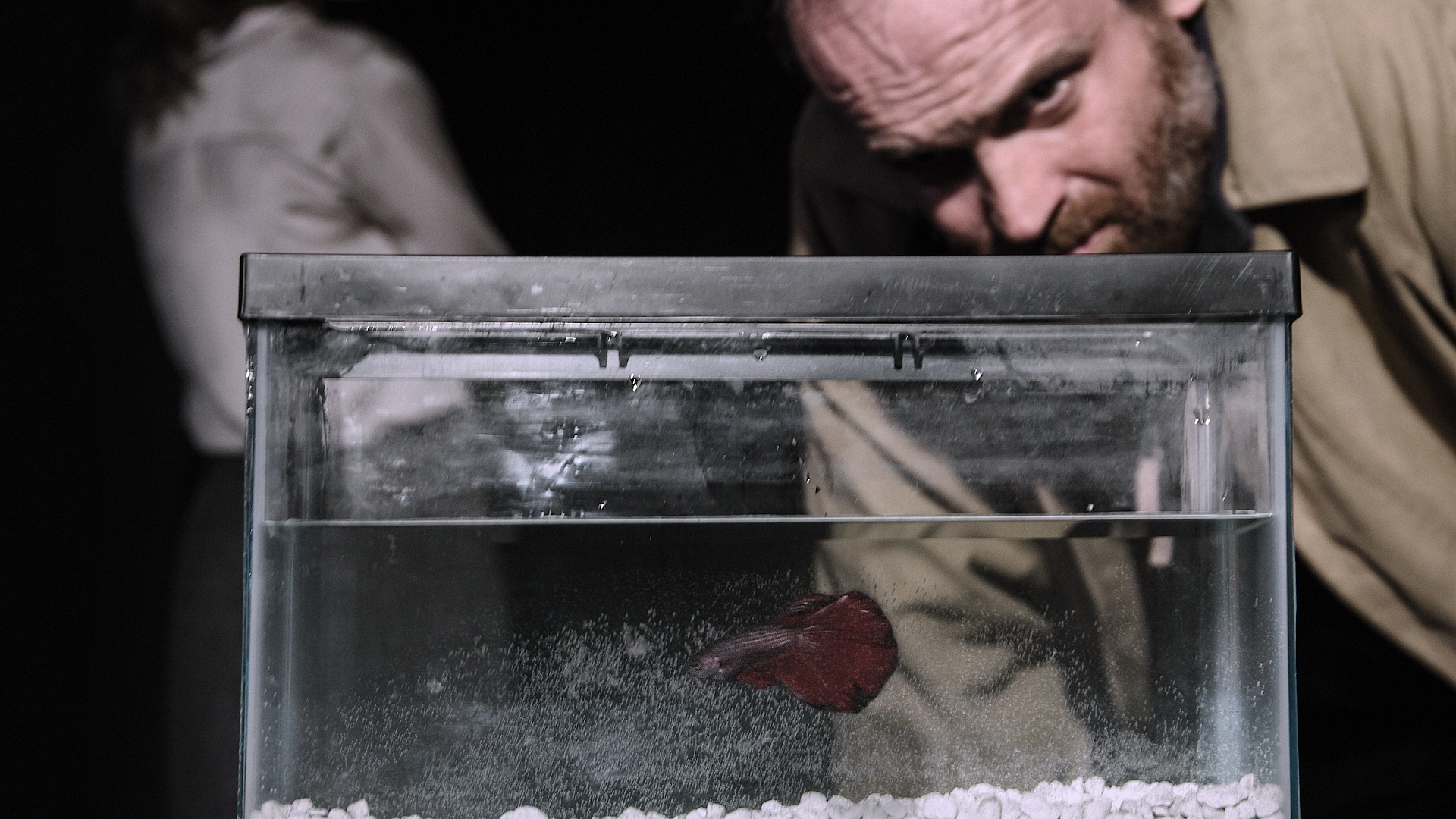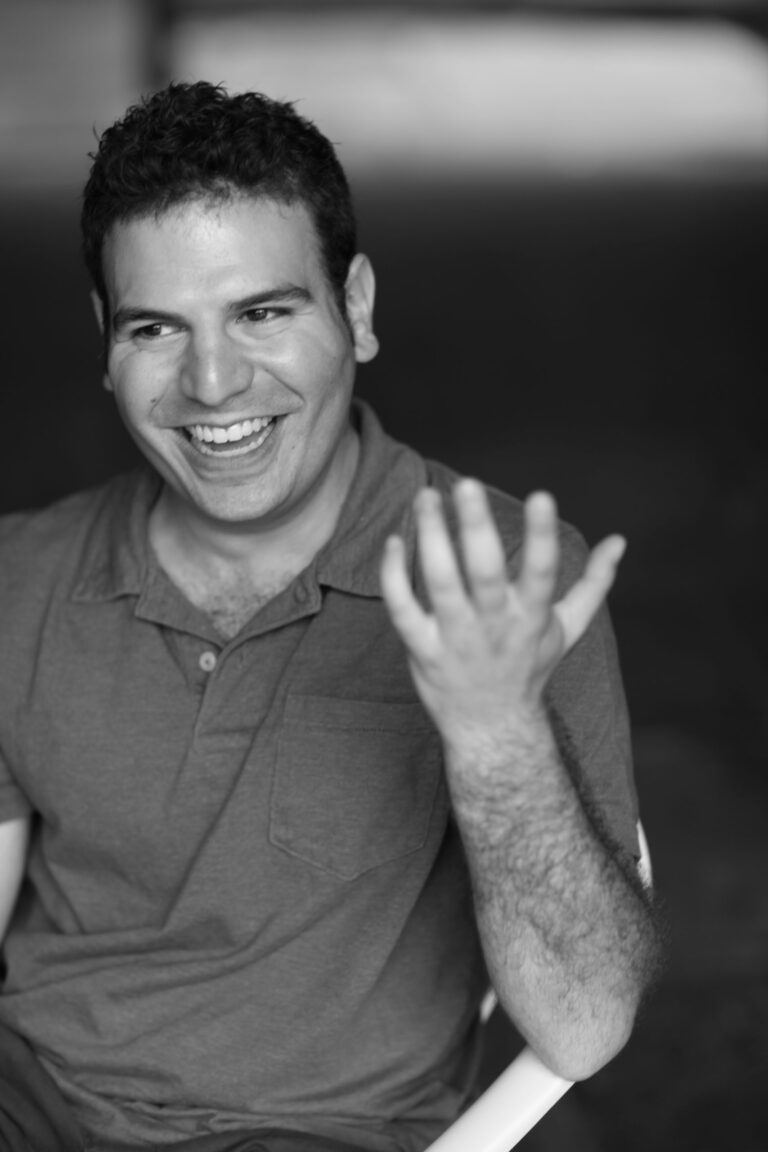A Grave Need for Empathy
My parents still think I’d make a good funeral director.
They got the idea into their heads when I was in high school. My Career Studies classmates and I had been required to take one of those standardized multiple choice personality tests designed to determine our ideal professions. I filled out all the bubbles on the Scantron card as honestly as I could and received two results: writer, and funeral director.
At the time I had just begun writing plays and producing them with my friends, and the prospect of writing for the theatre as a career excited me. I remember it was actually validating to confirm that, you know, this crazy idea of mine might not be so insane after all, even if that confirmation came from a dumb test that Mike Harris’ government forced me to take.
On the other hand, I couldn’t for the life of me think of what it was about my personality that would make me a good funeral director. Apart from binge-watching the first season of Six Feet Under on DVD after having my wisdom teeth removed, I’d never given the profession any real consideration.
My parents, however, were elated. Realizing their son was already taking steps to pursue his (let’s face it) foolhardy daydream of being a professional Canadian theatre artist, they did everything they could to convince me that my personality test was correct—sure, I could write as much as I liked on the side, but my career should be in another field altogether: the lucrative world of funeral direction. What’s more, they claimed, if I thought about it, the two vocations weren’t actually all that different.
They didn’t succeed in changing my mind. Between you and me, it sounded like they were grasping at straws. But, since then, I’ve often found myself thinking about how playwriting might actually be similar to funeral direction. And, the more I think about the way in which the two careers resemble one another, the more I realize that their basic similarity is what continues to inform my overall artistic philosophy and practice.

Nola Martin in Miss. Photo by Michael Osuszek
A playwright, essentially, helps characters navigate crisis. I imagine a funeral director’s job is not all that different, albeit they assist real people, not fictional ones. A funeral director is constantly engaging with people who have suffered loss, people who are in pain, people who need help and compassion and understanding at a pivotal moment in their lives. For me, constructing a play requires placing characters in these types of emotionally intense circumstances—watershed, transformative moments similar to the death of a loved one. From there, it’s a matter of helping them work their way through high-stakes conflict to the best of their abilities. Doing so requires an intimate awareness of what these characters are feeling, moment to moment. That same type of understanding is what allows a funeral director to successfully help the mourners they encounter. And so, on a very fundamental level, both a playwright and a funeral director require one essential tool: empathy.
I tend to write about people in the midst of major moral dilemmas that force them to confront who they really are. I write about people who will do whatever they feel is necessary to try and overcome insurmountable conflicts. It’s not always easy to empathize with people in these grave (sorry) circumstances. People behave differently in crisis, often showing their truest, most disagreeable colours. Writing about people in crisis requires me to reserve my personal judgment about them. Even if these fictional characters do despicable things, I need to be able to find a part of myself that understands, on an elemental level, what motivated them to make those decisions. I also need to root for them. As I steer each character through their own personal crises, I have to hope that each of them will succeed, that they’ll come out of the battle unscathed… even though I know that most of them probably won’t.
This is especially true of my play Miss, which takes place after an accident during a brutal fight at a boarding school irrevocably changes the lives of a high school English teacher, her fiancé, and one of her students. It’s a tense showdown between these three characters. Each of them is flawed; each of them has made bad decisions that brought them to this impossible situation. But to write them truthfully, I needed to find ways to sympathize with them. That meant giving myself permission to write long stretches of the script from a very dark emotional place. The characters in Miss are each at their own personal rock bottom, and to do them justice, I needed to find ways to access that place in myself.
It’s no surprise, given the emotional tolls over-empathizing can take on an individual, that the funeral direction profession has a traditionally low retention rate. Not too long ago, I listened to a couple of interviews with Caleb Wilde, the author of Confessions of a Funeral Director, where he very openly discusses the emotional burnout he suffered from giving so much of himself, on a daily basis, to people at the height of their pain. It wasn’t the stench of death, the routine embalming, the reattachment of severed limbs that caused him to actually physically collapse. It was the strain from embracing the suffering of so many other people.

Wayne Burns in Miss. Photo by Michael Osuszek
I’m not suggesting that playwrights have it just as bad. Far from it. When I work on a play, I embrace the pain of people I literally invented myself. Whenever I feel like it, I can turn off my laptop, go for a walk, and return to the real world. But the work of empathy can be taxing. And I think that’s what makes it a worthwhile pursuit. It takes a certain effort to really see one another, warts and all, and try to sympathize. That effort, that valuable work, on both an individual and collective scale, seems to be in short supply nowadays.
We have all, it seems, found ourselves at a watershed, transformative moment. We’re navigating our own way through an extraordinary crisis, one where a great political and ideological divide seems poised to push us as far apart from one another as possible. The world is the most divided it’s been in my lifetime. And it feels like, on a very large scale, we lack the willingness required to try and overcome our own insurmountable conflicts. If we really want to try and bridge this steadily widening gap, we need to try and actively deepen our capacity for empathy. I think going to the theatre, opening our minds to uncomfortable questions and opening our hearts to people we may otherwise dismiss, can have a lasting, positive effect on our ability to empathize.
My parents weren’t all that wrong when they tried to convince me that being a playwright wasn’t that different from being a funeral director. We both create a safe place for a group of people to share an emotional experience with one another, to undergo a potentially healing ritual, together. We both try to see ourselves in one another, to take on each other’s pain. And hopefully, in doing so, to bring people some understanding, some comfort. Some peace.










Comments